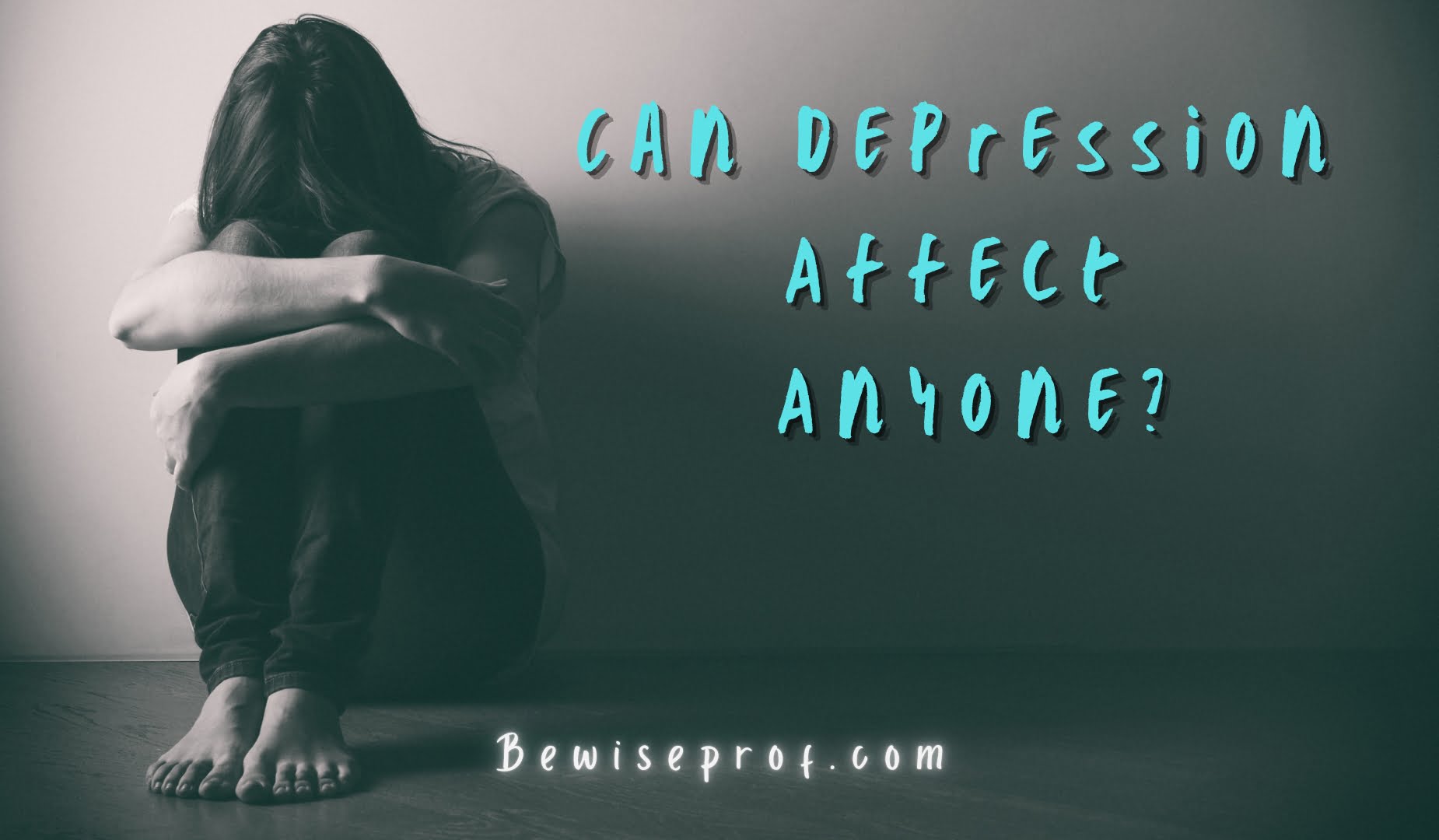Like everything else in life, you can’t expect to live your life without experiencing depression at one point. Most of us deal with depression and stress throughout our lives, while there are those who don’t seem to suffer from it, and you may wonder what steps they’ve taken to recover from this condition.
Regardless of your status in life, depression will affect you. Contrary to previous beliefs, depression is normal and it can affect anyone. It’s important to note, though, that depression is completely different from sadness or disappointment. When you’re depressed, your daily routine can severely be interrupted; it can make things more challenging and complicated, and make you become uninterested with activities that you liked before.
If you’ve been diagnosed with depression, your focus from now on is to get treatment that centers on improving your mental and physical health, as mentioned on https://apibhs.com/inpatient-depression-treatment. Keep in mind, though, that depression will also affect the other people around you. If you’re not convinced with this fact, here are some ways that depression can affect anyone and everyone around you:
Depression Can Create A Negative Atmosphere Around You
According to research, people who are diagnosed with depression tend to direct their attention more towards sad facial expressions and the use of emotional words and adjectives. Also, people with depression often see vague social interactions in a negative way, and blame themselves for their social difficulties.
As a result, a depressed person will have fewer close relationships, higher chances of unfavorable social interactions, and lack of empathy from others. Chronically depressed people also have the tendency to create a negative atmosphere around others, causing social rejection and even leading to the eventual loss of socially rewarding relationships.

Tons of research have been made to consistently show the link between experiencing depression and rejection from people around you. Based on the results of a research, it has been shown that interacting with someone who has depression may cause other people around them to feel more depressed, anxious, rejecting, and hostile. These negative feelings can make it harder for someone with depression to develop and sustain social relationships.
Conflictual Relationships Can Develop
Individuals who interact with someone who has depression regularly can also become hostile, emotionally over-involved, and critical toward that person. This change in behavior is often called as expressed emotion, and you can often observe it among caregivers who are taking care of a depressed patient, or parents looking after their depressed children.
If this change in behavior is ignored, it can lead to a conflictual relationship between the caregiver and the patient. This can be very bad for the person struggling with depression as it worsens the symptoms they’re suffering.
Expressed emotion can also increase the risk of the patient relapsing into depression, causing their cycle of negativity to continue, especially if it’s not addressed by the caregiver. The best thing to do in these cases is to subject the patient to family-focused therapy and make the family members and loved ones aware of the situation through psycho-education.
Depression Can Affect The Physical Health Of Everyone Around You
Depression can also cause a variety of health problems among people who are around the patient regularly. Family members, friends, and caregivers, in particular, often show a higher risk of symptoms of depression and other mental health problems. As a result, a significant number of these people have met the criteria for being diagnosed with clinical depression.
They also show higher levels of stress, anger, fatigue, guilt, and helplessness. It can be a lot worse for caregivers who experience stress regularly, as they have a higher chance of suffering from decreased mental performance, shortened attention spans, and impaired memory functions.
Aside from mental health problems, depression can also cause your family and friends to suffer from physical health problems such as headaches, body pain, heart disease, arthritis, diabetes, increased levels of stress hormones, weakened immune system, cancer, etc.
As your caregiver’s physical and health status continues to decline, the symptoms of depression they’re already feeling will gradually worsen. Some individuals who are regularly taking care of a depressed person (e.g., parents), are even advised to take prescription medication as a means of coping with depression themselves.
In general, the people around a person with depression may often find themselves having a hard time looking after themselves, which can lead to a number of physical and mental health problems, especially if there are no coping strategies implemented. Also, keep in mind that even those who might not regularly interact with a depressed person can also experience these health problems.
Be Wary Of Your Social Behavior At All Times
If you’re a clinically-depressed individual, you have to know that your social behavior can have a huge impact to everyone around you. So, it’s important to be aware of your social behavior at all times whenever you socialize with others.
If you regularly feel a loss of interest, fatigue, inability to concentrate, decreased focus, insomnia, difficulties socializing with others, or frequently thinking about suicide, especially when doing outdoor or pleasurable activities, keep in mind that these symptoms can also have a profound effect on both your long-term health and that of the people around you. This is why receiving treatment and pursuing family-focused or caregiver-focused therapy is important for you and your loved ones.
Considering that depression has the capacity to affect those around you, it’s important to surround yourself with people in your life who are strong and stable, both mentally and physically. They must understand the importance of self-care so they can be effective in looking after you and supporting you when you need it the most. This can also help reduce conflicts between you and your family or loved ones, as well as help prevent the loss of close relationships.
However, you shouldn’t rely on your personal connections alone when it comes to coping with your depression, as it’s not a guaranteed permanent solution. Always remember that treatments for depression can only be effective when you fully understand how it affects you and everyone around you. Don’t be afraid to seek out beneficial treatment options that may be good for you.
Getting Treatment For Depression
First and foremost, it’s important to understand that depression can be treated. But the first step in getting effective treatment for depression is to understand it and recognize how you got it. To do this, you must first undergo a measure of self-assessment that evaluates the kind of lifestyle you’ve lived.
Is your lifestyle one that’s filled with stress and worry? Does it leave you little time for anything but work? Are you constantly struggling to make ends meet? Are you unfulfilled and dissatisfied with your daily life and routines? These are just some of the situations that you may have to look into so you can take the first steps in treating your depression.
Other instances that can trigger depression may include the loss of a job, health issues or even having to care for a family member who’s sick.
Oftentimes, what helps alleviate symptoms of depression is for the depressed person to open up to someone they trust, and who they feel will not judge or criticize them for their thoughts. For instance, if your career has been something that you loved to do, but it has become something that you dread doing, you can talk to a trusted partner about how it’s affecting your life. Your partner may be able to give you new ideas on how to change the direction that you’re moving towards.
Getting professional help is also an avenue you can pursue to get treatment. Unlike in the past, the stigma about depression and getting help from a professional are significantly less now that people are more aware of the causes, symptoms, and manifestations of depression. If left untreated, it’s very possible that such a condition might get worse, which can lead to extreme actions or even suicidal thoughts.
Final Thoughts
You may ask yourself, “What can I do if my loved one is suffering from depression?” If you’ve tried talking to your loved one, but they refuse to discuss it with you, there are other things you can do. Therapy is a good option, as well as looking into activities that could allow them to take a break from their daily routine. Try to be patient and sympathetic with them, but also give yourself a break if you feel that you’re being overwhelmed or negatively affected by their situation.
Depression affects everyone differently regardless of their status in life. Its symptoms even differ from person to person. It’s important to understand what depression is and how it affects a person. By being aware of these facts, you will be able to help a depressed loved one if the need arises. If you or someone you know is suffering from symptoms of depression, then it’s important to seek help from a mental health professional to identify the root causes of the depression and to determine an effective and personalized treatment strategy.
